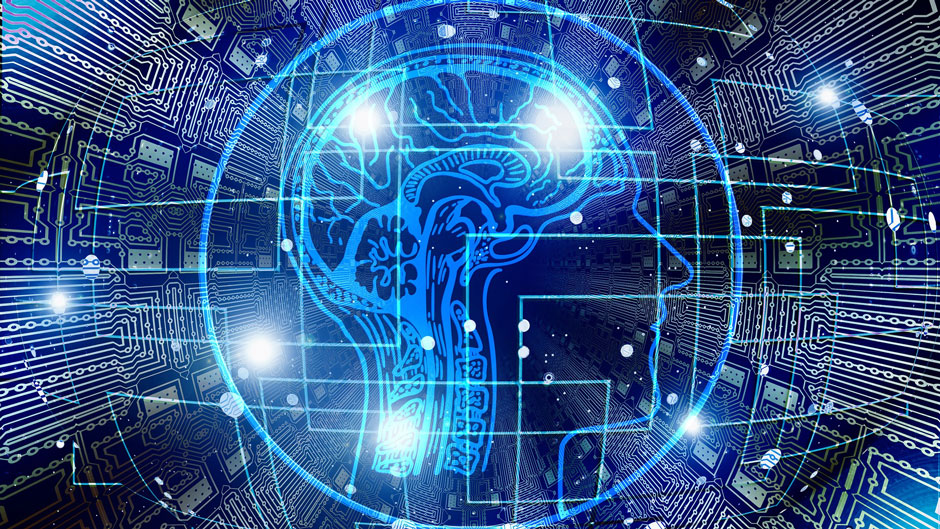Can machine learning address the kind of ethnic and racial disparities in the criminal justice system that propelled the Black Lives Matter movement? Or help develop personalized treatments for the “silent epidemic” of brain injury, which affects 1.5 million Americans every year?
Two teams of faculty from seven disciplines will begin answering those questions with the second set of Phase I grants awarded by the University of Miami Laboratory for Integrative Knowledge, or U-LINK. A key initiative of the Roadmap to Our New Century, U-LINK was launched two years ago to foster interdisciplinary collaborations and new approaches to complex problems across the University.
Another four teams with specialists from the Center for Computational Science and faculty from nine of the University’s colleges and schools also were awarded Phase I funding for their proposals addressing challenges related to climate change, childhood poverty, and the data revolution.
“Our strategy is to allow faculty teams to choose their own research problems. It was interesting that so many teams focused this year on the application of big data to health and social issues,” said John Bixby, vice provost for research, who directs the U-LINK initiative.
Added Susan Morgan, associate provost for research and U-LINK’s co-director: “These are innovative proposals from creative people that go well beyond expected approaches. We look forward to working with these highly diverse teams to help them achieve their visions.”
Like the inaugural round of Phase I grantees—three of which have since received Phase II funding of $150,000—the new Phase I teams receive $40,000 in salary support, the benefit of a UM librarian’s expertise, and use of U-LINK’s collaboration space at Richter Library. Team members also will attend a two-day Team Science Workshop starting Jan. 31, where they’ll learn more about the art and science of interdisciplinary research, which is essential to tackling society’s most vexing problems.
Here’s a look at the proposals and the U-LINK teams behind them:
Facial Profiling: Defendant Physical Characteristics, Machine Learning Analytics, and Criminal Justice Disparities in Miami-Dade County
Combining computer science with sociology and law, this team plans to develop a machine learning model that can test whether skin tone and other facial features of criminal suspects leads to disparate punishment outcomes in Miami-Dade County’s criminal justice system.
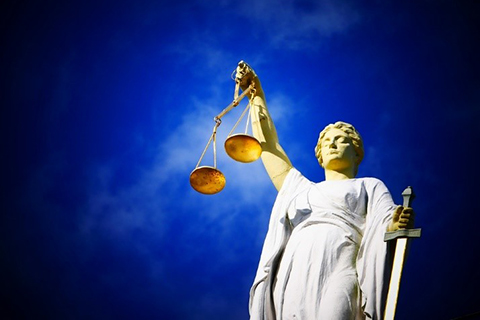 The proposed machine learning model, which the researchers believe could shed light on biases built into facial recognition technologies increasingly used by law enforcement, builds on the study two UM sociologists conducted for the American Civil Liberties Union of Florida last year. The unprecedented analysis by assistant professors Nicholas Petersen and Marisa Omori of the outcomes of 200,000 arrests in Miami-Dade found that blacks, particularly black Hispanics, are over-represented relative to their share of the population at every stage—from arrest and pretrial detention to sentencing and incarceration—of the criminal justice system.
The proposed machine learning model, which the researchers believe could shed light on biases built into facial recognition technologies increasingly used by law enforcement, builds on the study two UM sociologists conducted for the American Civil Liberties Union of Florida last year. The unprecedented analysis by assistant professors Nicholas Petersen and Marisa Omori of the outcomes of 200,000 arrests in Miami-Dade found that blacks, particularly black Hispanics, are over-represented relative to their share of the population at every stage—from arrest and pretrial detention to sentencing and incarceration—of the criminal justice system.
For their U-LINK proposal, researchers will train student raters to classify facial features from a sample of the arrest mugshots from the defendants in the ACLU study, and use that sample to develop machine learning algorithms to classify all 200,000 defendants. As the researchers note, facial recognition algorithms typically are based on data from white faces, increasing the likelihood that darker faces will be flagged as “suspicious.”
“If we can show that racial disparities exist in a sample of our size,” the team wrote in its proposal, it “might bring to light improper race-based decision-making, which could then be challenged in the courts.”
In addition to Petersen and Omori, the team includes Ubbo Visser, associate professor in the Department of Computer Science; Tamara Lave, associate professor in the School of Law; and Cameron Riopelle, data services librarian.
Personalized Treatment after Brain Injury: Combining Biological and Cognitive Factors with Machine Learning Approaches
For this proposal, experts in neurological surgery, computer science, psychology, and physical medicine and rehabilitation hope to employ machine learning technology to develop “precision medicine” treatments for the 1.5 million patients in the U.S. who suffer from traumatic brain injuries (TBIs) every year—but are left with surprisingly few effective treatments.
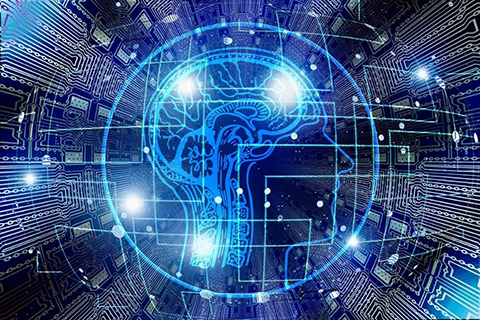 Noting that the lack of viable treatments may be due, in part, to the multitude of causes and severity of TBIs, team members believe that recent breakthroughs in machine learning, particularly in the area of “deep learning,” could help clinicians tailor treatments for the myriad types and severities of TBIs.
Noting that the lack of viable treatments may be due, in part, to the multitude of causes and severity of TBIs, team members believe that recent breakthroughs in machine learning, particularly in the area of “deep learning,” could help clinicians tailor treatments for the myriad types and severities of TBIs.
Since deep learning involves stacking multiple layers of complex computations, allowing the computer to “learn” progressively more complex concepts, the team believes it has access to a valuable deep learning tool for assessing brain injuries: the dataset from Operation Brain Trauma Therapy (OBTT), which includes multiple injury models, treatment strategies, behavioral assessments, task performance videos, histological assessments, and biomarker screenings.
As team members noted, “For machine learning, OBTT is a goldmine” that could “shed light on a number of pressing questions that have eluded conventional statistics” on TBI cases, which every year are six times higher than the number of new breast cancer, spinal cord injury, HIV infection, and multiple sclerosis cases combined.
Team members on this project, which is co-sponsored by the University’s Clinical and Translational Science Institute, include professors Helen Bramlett and W. Dalton Dietrich, scientific faculty of The Miami Project to Cure Paralysis; Odelia Schwartz and Dilip Sarkar, associate professors of computer science; Lucina Uddin, associate professor of psychology; Lauren Shapiro, assistant professor of clinical in the Department of Physical Medicine and Rehabilitation; and Zsuzsa Nemeth, reference librarian and research liaison.
Hyper-localism: Transforming the Paradigm for Climate Adaptation
Drawing from expertise in architecture, atmospheric sciences, communication, ecosystem science and policy, marine geosciences, and public health, this team hopes to expand the conversation about climate change resilience by focusing on hyper-local (Hy-Lo), rather than regional, adaptations. Their goal is to put people first, with almost block-by-block mapping and granular analyses.
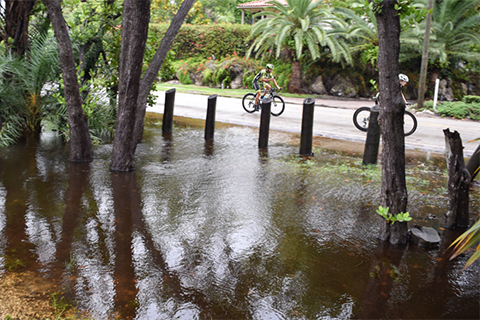 “The Hy-Lo approach recognizes that impacts of climate change can differ from neighborhood to neighborhood, based both on the physical context as well as societal vulnerability,” the team wrote in its proposal. “We view this fundamentally human-based approach as critical to helping individuals and communities across the globe face the challenges of climate change.”
“The Hy-Lo approach recognizes that impacts of climate change can differ from neighborhood to neighborhood, based both on the physical context as well as societal vulnerability,” the team wrote in its proposal. “We view this fundamentally human-based approach as critical to helping individuals and communities across the globe face the challenges of climate change.”
Team members plan to engage with local stakeholders and networks of organizations to analyze the risks, values, assets, and possible actions in given areas. Because Miami has a broadly diverse geography and demographic profile, the region is an ideal location to develop a framework for hyper-local approaches, which team members believe neighborhoods across the nation and world could use to tailor effective climate action plans for their own unique circumstances.
“We see this HyLo protocol as ‘scaling down to scale up,’” the team wrote in its proposal.
Team members include Joanna Lombard, professor in the School of Architecture and Department of Public Health Sciences; Tyler Harrison, professor in the School of Communication; Sam Purkis, professor and chair in the Department of Marine Geosciences; Gina Maranto, director in the Abess Center for Ecosystem Science and Policy; Amy Clement, professor in the Department of Atmospheric Sciences; and Angela Clark-Hughes, head of the Rosenstiel School of Marine and Atmospheric Science Library.
Leveraging Untapped Opportunities in Place and Time: A Community-Based Child Well-Being Collaborative
For this program, specialists in psychology, public health sciences, health economics, history, pediatrics, computational science, and geography plan to lay the groundwork for the development of an integrated data system that can identify the “opportunity gaps” that disproportionately affect children growing up in poverty—enabling educators, social workers, policymakers and health care professionals to address them.
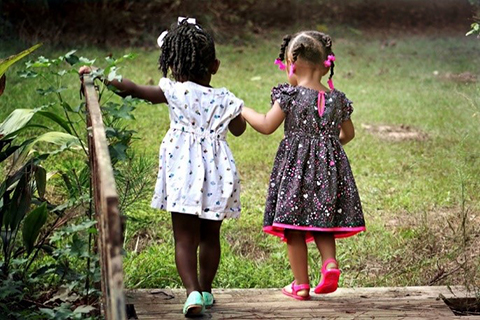 As team members note, school districts and other public agencies that serve children operate independently and “silo” the data they collect and store, making it difficult for researchers and stakeholders to work together to identify the gaps where interventions are needed. As a result, they miss early opportunities to improve the lives of children, and their future success.
As team members note, school districts and other public agencies that serve children operate independently and “silo” the data they collect and store, making it difficult for researchers and stakeholders to work together to identify the gaps where interventions are needed. As a result, they miss early opportunities to improve the lives of children, and their future success.
“Educators and health care providers need access to quality, timely data to guide their actions across multiple sectors, to identify gaps where interventions are most needed to reduce children’s cumulative exposure to risks that may lead to poor educational, health, and social behavioral outcomes,” the team wrote in its proposal.
Team members include Rebecca Shearer, associate professor, and Christine Delgado, research associate professor, in the Department of Psychology; Robin Bachin, associate professor of history; Jeff Brosco, professor of clinical pediatrics; Chris Mader, director of software engineering at the Center for Computational Science; Imelda Moise, assistant professor in the Department of Geography and Regional Studies; Scott Brown, research associate professor, and Kathryn McCollister, associate professor, in the Department of Public Health Sciences; and Vera Spika, learning and research services librarian.
Inclusion Matters in the Data Revolution
This team brings together specialists in computational science, statistics, law, and mental health and education research to explore the inequities that underrepresented and marginalized populations face in accessing, using, and benefiting from the revolution in big data that is transforming society.
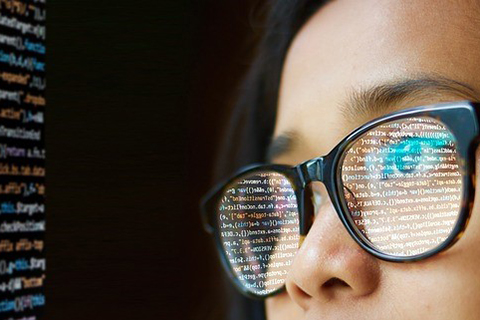 As the researchers note, the backgrounds of data professionals can influence how they prepare, model, evaluate, and use data in almost every realm—from entertainment and health care to criminal justice and personalized shopping. Given that data professionals are disproportionately white males and those with privilege, privilege is often embedded in the data itself, in the questions that data professionals ask, and also in the interpretations of insights from data analyses. The result, the team said, is an “inequitable distribution of power in each phase of the data lifecycle” which has serious social, cultural, economic, and structural consequences.
As the researchers note, the backgrounds of data professionals can influence how they prepare, model, evaluate, and use data in almost every realm—from entertainment and health care to criminal justice and personalized shopping. Given that data professionals are disproportionately white males and those with privilege, privilege is often embedded in the data itself, in the questions that data professionals ask, and also in the interpretations of insights from data analyses. The result, the team said, is an “inequitable distribution of power in each phase of the data lifecycle” which has serious social, cultural, economic, and structural consequences.
For their grant, team members plan to determine the effects of social equality and diversity on data production and collection; data manipulation; and analysis and data usage in decision-making.
Team members include Athina Hadjixenofontos, director of programs at the Center for Computational Science; Jennifer Kahn, assistant professor in the Department of Teaching and Learning; Soyeon Ahn, associate professor and chair, and Debbiesiu Lee, assistant professor, in the Department of Educational and Psychology Studies; Zanita Fenton, professor of law; and Lauren Fralinger, learning and research services librarian.
Next Generation of Coastal Structures: Incorporating Ecology, Engineering, Economics, and Aesthetic for a Changing Ocean
With this grant, a team from six different fields plans to develop guidelines for the next generation of bridges, breakwaters, seawalls and other coastal structures that can protect coastal communities from rising seas, flooding and other effects of climate change—without negatively affecting coastal ecosystems or the beauty of the communities around them.
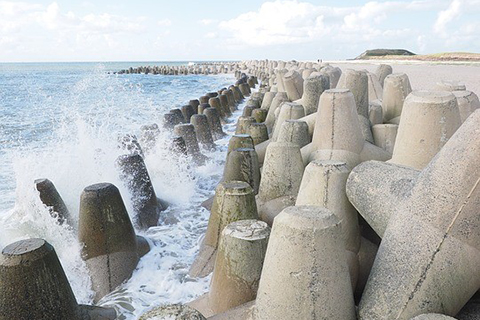 “Because coastal structures are often constructed with concrete and are typically engineered for a specific purpose, little consideration is given to the interactions between these structures and coastal ecosystems, their potential to replicate natural environments, and their ability to produce aesthetic value,” the team wrote in its proposal.
“Because coastal structures are often constructed with concrete and are typically engineered for a specific purpose, little consideration is given to the interactions between these structures and coastal ecosystems, their potential to replicate natural environments, and their ability to produce aesthetic value,” the team wrote in its proposal.
Team members, who include an architect, artist, biologist, economist, two engineers, and a marine scientist hope to challenge that paradigm by visiting traditional coastal structures in Florida, Georgia, South Carolina, and Alabama, and, based on those field trips and community input, visualizing sustainable and multifunctional alternatives with aesthetic value. As the team noted, “Developing these structures based on principles that aim to achieve multiple goals can have significant, lasting positive effects.”
The team includes Prannoy Suraneni, assistant professor, and Esber Andiroglu, associate professor of clinical, in the Department of Civil, Architectural and Environmental Engineering; Kathleen Sealey, associate professor of biology; Billie Lynn, associate professor of sculpture; Joel Lamere, assistant professor of architecture; David Kelly, professor of economics; Renato Molina, assistant professor of marine ecosystems and society; and James Sobczak, STEM librarian for Learning and Research Services.
During this second grant cycle, U-LINK’s action team also renewed Phase I support for the team previously known as SCORE. Now called “Extremist Content and Conspiracy Theories in Online Social Networks – Understanding and Disrupting the Causal Processes Linking Content to Violence,” the team’s updated proposal builds on its previous Phase I work aimed at understanding how extremist groups attract and motivate members via social media.
The U-LINK action team also designated members of an eighth team of grant applicants as U-LINK Fellows, making them eligible for the same team science training and library expertise as Phase I recipients, but not for salary support. For their proposal, “What Drives Virality: Content and Contextual Analysis,” the team plans to investigate what makes cyber social media videos that contain misinformation on important issues go viral.
